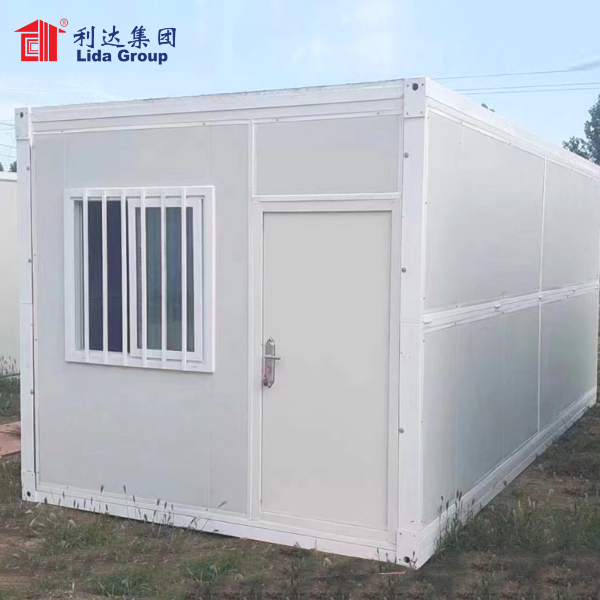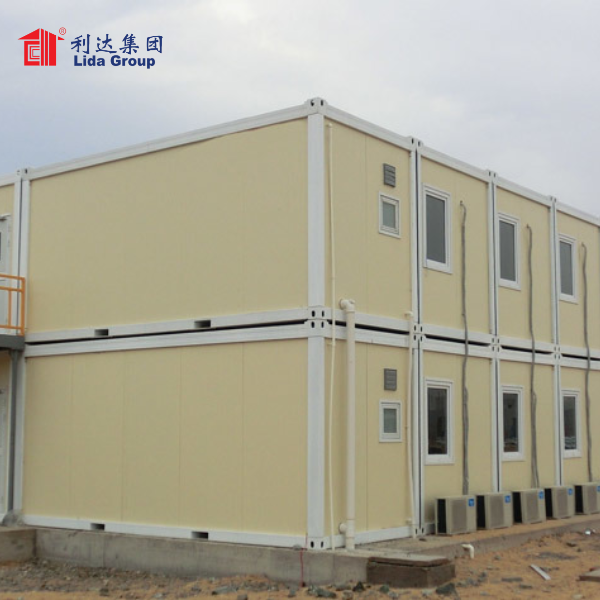Introduction
In the ever-evolving landscape of construction and industrial projects, the need for efficient, adaptable, and cost-effective site camps has become increasingly evident. Traditional site camps often face challenges related to space, logistics, and worker comfort. However, container solutions have emerged as a transformative approach to reimagining site camps, offering innovative ways to enhance efficiency, reduce costs, and improve the overall experience for workers. This article explores the myriad benefits of container solutions in site camps, examining their design, applications, and the future of temporary accommodations in various industries.
Understanding Container Solutions
1. What Are Container Solutions?
Container solutions refer to the use of shipping containers as modular structures for various applications, including site camps, offices, storage, and more. These containers are designed to be easily transported and adapted for multiple purposes, making them an ideal choice for temporary or semi-permanent setups.
2. The Rise of Modular Construction
Modular construction has gained popularity due to its ability to streamline processes, reduce waste, and minimize environmental impact. Container solutions fit perfectly within this paradigm, providing a flexible and sustainable alternative to traditional building methods.
Advantages of Container Solutions in Site Camps
1. Cost-Effectiveness
A. Lower Initial Investment
One of the primary advantages of container solutions is their cost-effectiveness. Shipping containers are often available at a lower price point than traditional building materials, making them an attractive option for companies looking to minimize initial investments.
B. Reduced Labor Costs
The assembly and setup of container solutions typically require less labor compared to conventional construction methods. With pre-fabricated designs, companies can save on labor costs while still providing quality accommodations for their workforce.
2. Speed of Deployment
A. Rapid Construction
Container solutions can be deployed quickly, allowing companies to set up site camps in a fraction of the time required for traditional construction. This rapid deployment is especially crucial in industries where time is of the essence, such as mining, oil and gas, and construction.
B. Minimal Site Preparation
The use of container solutions often requires less site preparation compared to traditional building methods. Many containers can be placed on existing infrastructure or even directly on the ground, further expediting the setup process.
3. Flexibility and Adaptability
A. Modular Design
The modular nature of container solutions allows for easy customization and reconfiguration. Companies can adapt the layout of their site camps based on changing requirements, ensuring that accommodations remain functional and efficient.
B. Scalable Solutions
Container solutions can be scaled up or down to meet the needs of varying project sizes. Whether a small temporary site camp or a large, multi-unit complex, container structures can be adjusted accordingly.
4. Enhanced Worker Comfort
A. Improved Living Conditions
Container solutions can be designed to provide comfortable living conditions for workers. Features such as insulation, climate control, and proper ventilation can be integrated to ensure a pleasant environment.
B. Amenities and Facilities
Modern container site camps can include various amenities, such as kitchens, bathrooms, recreational areas, and even office spaces. These facilities contribute to a better quality of life for workers, promoting well-being and productivity.
Applications of Container Solutions in Site Camps
1. Construction Projects
A. Temporary Workforce Housing
In construction, container solutions can serve as temporary housing for workers on-site. With the ability to customize layouts and integrate amenities, companies can create comfortable living spaces that meet the specific needs of their workforce.
B. On-Site Offices
Container solutions can also be utilized as portable offices, providing a dedicated space for project management and administrative tasks. This setup allows for better communication and coordination among team members.
2. Mining and Resource Extraction
A. Remote Site Camps
In remote mining operations, container solutions are invaluable for setting up site camps where traditional construction methods may be impractical. These containers can withstand harsh environmental conditions while providing essential amenities for workers.
B. Safety and Security
Container solutions can be designed with enhanced security features, ensuring the safety of personnel and equipment in high-risk environments. This is crucial in the mining industry, where site security is often a top priority.
3. Oil and Gas Industry
A. Offshore and Onshore Camps
In the oil and gas sector, container solutions are frequently employed for both offshore and onshore site camps. These modular structures can be easily transported to remote locations, providing essential accommodations for workers.
B. Flexibility in Operations
The flexibility of container solutions allows companies to quickly adapt to changing operational needs, whether it involves expanding living quarters or creating additional workspace.
4. Humanitarian and Disaster Relief
A. Emergency Shelters
Container solutions have been successfully deployed in disaster relief scenarios, providing immediate housing for displaced individuals. Their rapid deployment capabilities make them ideal for emergency situations.
B. Temporary Medical Facilities
In the aftermath of natural disasters, container solutions can be converted into temporary medical facilities, offering essential healthcare services to affected populations.
Case Studies of Successful Container Solutions
1. Mining Project in Australia
A major mining company in Australia faced challenges in providing adequate housing for its workforce in a remote location. By implementing container solutions, the company was able to establish a fully functional site camp within weeks, complete with sleeping quarters, dining facilities, and recreational areas. The rapid deployment and adaptability of the container units significantly enhanced the efficiency of operations.
2. Oil Rig Support Camp
An offshore oil rig required temporary accommodations for its crew during maintenance operations. Container solutions were deployed to create a comfortable living environment, complete with private sleeping quarters and communal spaces. The ability to easily transport and assemble the containers contributed to the overall success of the project.
3. Disaster Relief in Haiti
Following a devastating earthquake, humanitarian organizations utilized container solutions to provide emergency shelters for displaced families in Haiti. These containers were transformed into livable spaces, offering much-needed protection and comfort in the aftermath of the disaster.
Challenges and Considerations
1. Regulatory and Zoning Issues
While container solutions offer numerous benefits, companies must navigate local regulations and zoning laws. Compliance with building codes and safety standards is essential to ensure that site camps meet legal requirements.
2. Logistics and Transportation
Transporting containers to remote locations can present logistical challenges. Companies must carefully plan transportation routes and consider factors such as accessibility and weight limits.
3. Initial Setup Costs
While container solutions can be cost-effective in the long run, the initial setup costs may still be a concern for some companies. Budgeting for transportation, modifications, and utilities is essential to ensure a successful deployment.
Future Trends in Container Solutions
1. Increased Customization Options
As demand for container solutions continues to grow, manufacturers are likely to offer even more customization options. This trend will allow companies to tailor site camps to meet their specific needs and preferences.
2. Smart Technology Integration
The integration of smart technology into container solutions will enhance efficiency and comfort. Features such as energy management systems, climate control, and remote monitoring will improve the overall functionality of site camps.
3. Sustainability Practices
As sustainability becomes a priority in construction and industrial practices, container solutions will increasingly incorporate eco-friendly materials and energy-efficient designs. This shift will contribute to reducing the environmental impact of temporary accommodations.
Conclusion
Container solutions are revolutionizing the way site camps are designed and implemented across various industries. Their cost-effectiveness, speed of deployment, flexibility, and ability to enhance worker comfort make them an ideal choice for construction, mining, oil and gas, and humanitarian projects.
As the demand for efficient temporary accommodations continues to rise, container solutions will play an increasingly critical role in meeting the needs of the workforce while promoting sustainability and innovation. By embracing this modern approach to site camps, companies can improve operational efficiency, reduce costs, and foster a better quality of life for their workers. The future of site camps is bright, with container solutions leading the way.
Contact Us
Post time: Sep-10-2024


